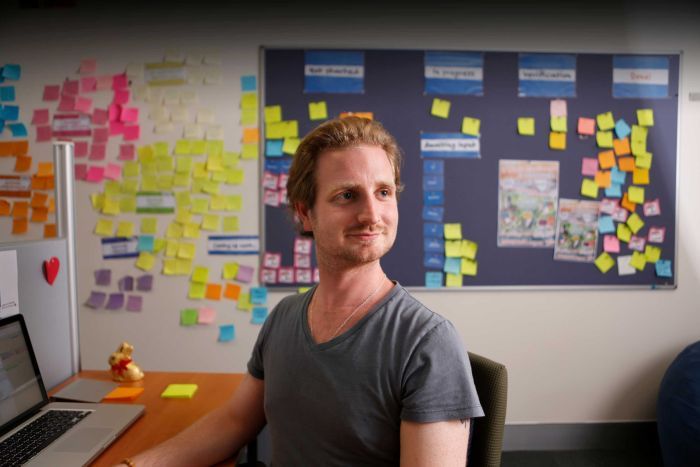WATCH: Australian Story :: The Fault In Our Stars
Mic Newling’s survivor story is undeniably inspiring.
At just 13 years old Mic began suffering from crippling mental illness which his psychiatrist Professor Gordon Parker described as “as severe as it could possibly be”.
After four years of unbelievable pain and confusion for both Mic and his family, hope finally came when Professor Parker (founder of the Black Dog Institute), diagnosed Mr Newling with bipolar disorder.
The frightening fact is that while we may think this seems like a long time before diagnosis, on average Australians with bipolar disorders wait a shocking 10 years before getting a diagnosis, if ever.
This is particularly so for bipolar II, which is far less understood than bipolar I.
Both are characterised by severe mood highs and lows, Bipolar I is more extreme with sufferers also experiencing psychosis and often ending up in hospital. Although Bipolar II is far more common, diagnosis is rare.
“It was just like living a nightmare,”
I wasn’t in control of my own mind … I was scared of my own thoughts.” – Mic Newling

“What began as just feeling sad and anxious soon moved into this weird sort of not grasping reality” Mic said.
The condition worsened and Mic began to have violent thoughts, finally telling his mum Jayne he wanted to” kill people”.
“It was just like living a nightmare,” Mic said.
“I wasn’t in control of my own mind … I was scared of my own thoughts.”
For four years Mic was diagnosed with a myriad of disorders; anxiety, depression , obsessive compulsive disorder and schizophrenia. He was plagued by suicidal thoughts, spent time in psychiatric wards, took many different medications and even underwent electroconvulsive therapy (a treatment reserved for the most extreme cases).
However nothing worked and he was forced to drop out of school. In retrospect Nic now looks back at his experience reflecting upon the problems surrounding diagnosis. He explains that:
“With specialists there’s a bit of a confirmation bias that can happen … he’d ask certain questions and I’d just say, ‘Yeah, that sounds like something I experience”.This is a huge problem especially when it comes to bipolar which shares many of the same symptoms as other mental illnesses.
Professor Parker diagnosed Mic with bipolar II when he was 16.
For Mr Newling’s family it was a celebratory moment of relief to finally find out what their son was suffering with.
Once he finally knew what he was dealing with Mic followed a holistic treatment program including medication, education and a wellbeing plan.
Professor Parker stressed that understanding the illnesses intricacies, especially its mood swings is vital. He also stresses the importance of simple lifestyle changes such as: no drugs, moderate alcohol, plenty of sleep and even vitamins and fish oil.
Over the next few years, Mic began slowly improving.
“Getting better after such a long period of time … [is]when I realised that I’ve got a future and I want to have a future,” he said.
Professor Parker said Mr Newling’s case was unusual in its severity, early onset and early diagnosis but he was confident his story does offer hope for others.
Today Mic is on a low dose of medication and has not had a severe high or low in years. Mic now works at the Black Dog Institute where he runs its adolescent website BITE BACK.
He is also a public advocate for people with mood disorders speaking in high schools about mental health issues.
“I just know how hard it was in school for me so if I can change that for others, I’d be crazy not to,” he said.
For Professor Parker, Mic’s recovery is “what he is in the profession for”.
via : Abc News story about Mic Newling
*[note I can fully vouch for this diagnosis problem. I had to witness my best friend struggle for 9 years before her bipolar disorder was diagnosed. She tried everything; depression treatment, wholistic therapy, drug abuse (self medication) as well as seeing countless health professionals before she was finally diagnosed at the age of 25. The moment she began her medication and treatment her whole life changed, the girl I knew so many years ago and fell in love with returned. It is heart-breaking that so many live this life of pain when treatment is readily available. The only way to fight this is to increase knowledge of the disease, formulate easier diagnosis techniques, educate health care AND health professions to recognise the differences between BI and BII, and more importantly break the stigma surrounding it that prevents many from wanting to be identified with it.]
x X
BB

